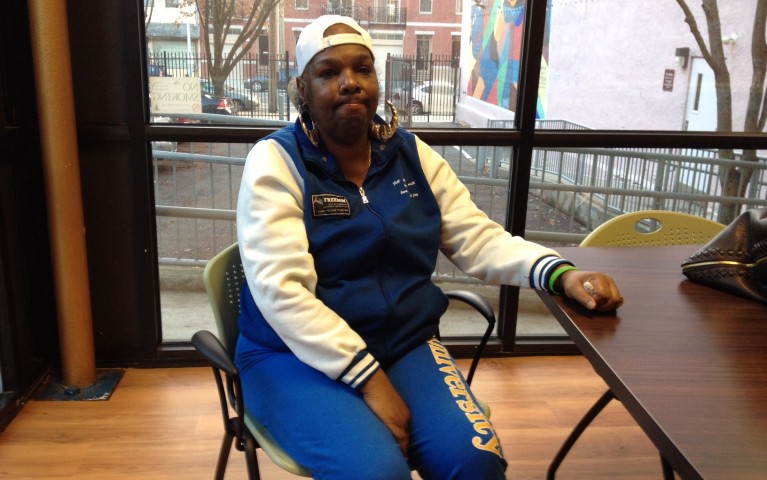A Tough Woman

Charlene Taylor is a tough woman. “Sometimes life is just life,” she explains with a hard-earned wisdom, “and what you have to endure, you have to endure, and then you have to move on.”
A resident of Project HOME’s 1515 Fairmount Avenue residence, Charlene has come a long way from a difficult upbringing in South Philadelphia. Her mother kept her sheltered from the identity of her biological father. “He was a rolling stone,” she explains, and although her father was absent for much of Charlene’s childhood his presence loomed. Charlene could remember her father standing outside the house, staring through the window and watching her. She recalls walking passed her father’s street with her mother on errand runs, even when the street was easily avoided. “As I got older, I was like, well if she really didn’t want me to know who my father was why would she walk down Fourth Street and not Fifth. I feel as though she loved him, but she just put me through the hardship that she was experiencing.”
To make matters worse, Charlene’s mother not only sheltered her from her father, but also from sexual education. In consequence, Charlene became pregnant at the young age of sixteen. According to her, “that’s when all hell broke loose.” Charlene moved out of her mother’s house, and moved in with her son’s grandmother. “My sons’ father was on drugs,” she states, “He was an alcoholic—stayed in jail.“ Although her son’s grandmother supported Charlene, she was confused and overwhelmed, and she turned to drugs. At the age of nineteen, she started having nervous breakdowns.
Without any strong male figures in her life, Charlene began a string of destructive relationships. Some were abusive, some controlling, some entangled in drugs. The man she eventually married died from an overdose. “He could have been a doctor or a lawyer, anything he wanted to be,” she recalls. “They found him in his car.”
Charlene Taylor is a strong woman, but at this point life seemed to be too much. After, her husband’s death she was depressed and unsure how to move forward. “I was really mixed up, hurt, confused, and angry.” She had the most severe nervous breakdown of her life. She did not feel like herself and she did not feel as though she could function. “I became very, very ill,” she recalls.
Fortunately, since coming to Project HOME ten years ago, Charlene has made huge strides. Looking at Charlene today, it is hard to imagine that she was ever unstable. She is composed. She is welcoming, and the second she meets me she is not afraid to joke around. Her laugh is contagious. “Coming to Project HOME,” she states, “I gained hope. I’ve gained faith. I’ve gained encouragement. I’ve gained wisdom.”
One program, which Charlene felt really helped her through her husband’s death is WRAP, or the Wellness Recovery Action Plan, which is used worldwide by those with mental health challenges. “I use my WRAP to do my daily maintenance plan. General things I need to do: go to work, keep up with cleaning, make sure I go to my appointments.” By keeping focused on small everyday tasks and taking things one step at a time, she began building a stronger sense of self. She learned to set goals and talk through her problems.
Now, Charlene aims to help others who are in her old shoes. She completed training to become a certified peer specialist, and she works with other residents at Project HOME’s Connelly House and Kairos House. She holds groups and facilitates discussions to help residents stay on track and continue to embrace their recovery. What’s more, Charlene has represented her peers by serving on Project HOME’s Board of Trustees. She encourages the importance of everyday mental health and advocates for other residents.
Charlene is a woman who has had to depend on some unreliable men. However, since coming to Project HOME she has learned to depend on herself. Today, Charlene is healthy, and she is using her voice to not only better herself, but her entire community. “I have grown so much over the years,” she states. “I am happy. I am contented. I feel loved. I feel wanted. I feel needed. I feel as though I can help my fellow peers be where I am today.”